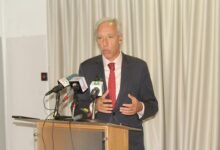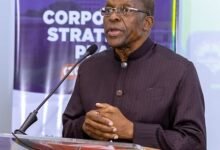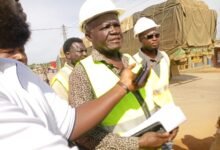
Former Finance Minister, Seth Terkper, backed the forthcoming Mahama administration’s initiative to hold a national dialogue aimed at establishing a sustainable strategy for Ghana’s economic recovery and reducing dependence on International Monetary Fund (IMF) assistance.
Speaking on Joy News’ PM Express Business Edition, in Accra on Monday, Mr Terkper, emphasised that the current economic difficulties facing Ghana highlight the necessity of uniting experts, policymakers, and stakeholders from various sectors to discuss viable solutions.
.“It is based again on our experience that when you bring together experts and a mix of experts and other strata of society, you can put before them, in more concrete terms, what is needed to achieve the manifesto promises,” Terkper stated, citing the Senchi Economic Forum as a successful precedent.
He cited the 2014 Senchi Economic Forum as a benchmark for the suggested national dialogue.
Mr Tekper acknowledged that Senchi played a crucial role in implementing several essential reforms that shaped Ghana’s economic policy under the previous Mahama administration.
“Senchi was what produced smart borrowing. It was where concepts like operationalising the Stabilisation Fund was discussed and implemented,” he explained.
“The Petroleum Revenue Management Act (PRMA) had been passed in 2011, and by 2013 we started operationalising it. We had to explain to the public that if we did this, the outcomes would be positive,” he stressed.
The former minister expressed regret that several of these measures were either discarded or not fully utilised in the years that followed, which has played a role in the nation’s present economic challenges.
“We have gone through a period of difficulty that could have been averted if some of these things had been done,” he noted.
Additionally, he said during his time in office, Ghana’s borrowing strategies were directed towards specific objectives, particularly in managing the expenses related to the Single Spine Salary Structure.
“We were borrowing through domestic bonds primarily to pay for the Single Spine, not just for other purposes. At forums in places like Ho and Takoradi, we explained to labour that arrears would be paid gradually over time to allow government resources to stabilise,” he recalled.
Mr Terkper claimed that this approach to borrowing, combined with fiscal discipline, enabled the Mahama administration to meet its targets within a two-and-a-half-year timeframe.
The former minister also highlighted the critical role of public consultation and parliamentary engagement in tackling challenges in Ghana’s energy sector.
Moreover, he recounted the Mahama administration’s introduction of the Energy Sector Levy Act (ESLA) as a targeted intervention to address energy sector debts caused by disruptions in gas supply from Nigeria.
“When the pipeline from Nigeria was breached, leading to non-supply of gas, VRA and others had to ramp up Independent Power Producers (IPPs).We went to the public and Parliament and said, ‘Let us use ESLA.’ It had a three- to five-year lifespan, but it provided the strength needed to address the crisis,” Terkper explained.
Terkper stressed that any meaningful economic recovery plan must involve clear communication with the public about the trade-offs and benefits of proposed policies.
BY TIMES REPOTER







